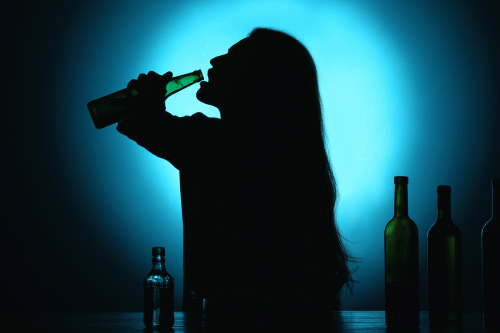

Living with an alcoholic can create long-term stress, instability, and emotional strain. Whether it’s a spouse, sibling, or alcoholic parent, the impact reaches every corner of family life. Alcohol use disorders are serious medical conditions that require support, structure, and professional treatment to manage effectively.
Alcohol use disorders affect millions of people across the U.S. each year. These disorders involve problematic alcohol use that leads to significant physical, emotional, and behavioral consequences. As alcohol dependence grows, the alcoholic in denial may become more isolated, erratic, or aggressive.
An alcoholic partner can disrupt daily routines, cause relationship issues, and create ongoing conflict. Mood swings and emotional violence often replace calm communication, leading to strained relationships. If alcohol consumption becomes frequent or excessive, the household environment may become volatile.
Alcohol abuse damages the health, security, and emotional well-being of the entire family. Children with alcoholic parents may face mental health challenges or develop their own substance use disorder later in life. Living with an alcoholic parent often includes physical abuse, emotional neglect, and unstable home dynamics.

Problematic drinking habits lead to risky behaviors such as drunk driving, gambling, or unsafe sexual activity. These actions increase stress on the family and may cause financial strain, legal trouble, or accidents. Alcoholic individuals may downplay the consequences, leading to deeper alcohol dependence.
Long-term alcohol use can destroy physical health by damaging the liver, heart, brain, and immune system. Withdrawal symptoms from alcohol dependence may include tremors, seizures, or delirium tremens. Alcohol addiction also weakens the body, making it harder to heal from injuries or illness.
An alcoholic in denial may hide alcohol, lie about drinking patterns, or become defensive. Denial can make it harder for family members to seek help or establish boundaries. This resistance often delays recovery from alcohol and keeps the cycle of abuse going.
Many individuals with alcohol use disorders also face mental health issues such as depression, anxiety, or PTSD. Alcohol abuse may worsen these symptoms and make it harder to maintain emotional stability. Professional help is necessary to treat both the addiction and underlying mental health challenges.
Alcohol often plays a role in intimate partner violence and domestic violence cases. Alcohol lowers inhibitions and increases the risk of physical violence or emotional abuse. If you feel unsafe, it is critical to seek immediate support or protection from law enforcement or shelters.

Ongoing alcohol consumption can quickly drain household resources. Medical bills, job loss, court fees, or frequent spending on alcohol all add to the financial strain. Alcohol dependency can turn into a financial crisis if not addressed through alcohol addiction treatment.
The influence of alcohol can break trust and destroy personal relationships. Friends and family may distance themselves to avoid the toxic behavior. Without support, the alcoholic may isolate and sink deeper into alcohol dependency and mental health issues.
While social drinking may seem harmless, it can easily become alcohol addiction if the person begins using alcohol to escape reality. What starts as weekend binge drinking may lead to daily alcohol use, withdrawal symptoms, and alcohol rehab. It’s important to recognize when social drinking shifts into addictive behavior.
Strained relationships form when alcohol use takes priority over honesty, connection, and care. Partners may argue constantly, and children may avoid home. Alcohol abuse breaks down trust and creates emotional violence that affects every member of the household.
Family therapy sessions can help families process trauma, rebuild communication, and set boundaries. Working with a licensed therapist can ease relationship issues caused by substance abuse issues. Family therapy is often part of outpatient treatment at Sullivan Recovery in Mission Viejo.
A professional interventionist can guide families through the process of confronting a loved one about their alcohol abuse. This expert support can help ensure safety and improve the chances of getting the alcoholic to accept alcohol treatment. Early action prevents long-term damage to mental health and family life.

Growing up with an alcoholic parent often leads to trauma, shame, and confusion. Children may develop addictive behavior, struggle in school, or have trouble forming healthy relationships. Parents with substance use problems often unintentionally repeat cycles of pain and neglect.
Mood swings are common in those with alcohol dependency. Alcohol alters brain chemistry, causing sudden emotional shifts and impulsive reactions. These mental health issues can escalate over time and contribute to ongoing relationship issues within the home.
The emotional impact of alcohol abuse often affects the entire family, especially partners and children. Substance use disorder leads to unpredictable behavior, which erodes trust and creates long-term stress. Loved ones may develop mental health challenges of their own, such as anxiety or depression.
Ongoing alcohol consumption may cause intense feelings of guilt, shame, or denial in both the alcoholic and their family members. Over time, emotional instability becomes part of the household dynamic. Families often need mental health services to process the trauma and restore emotional balance.
Physical abuse, even when infrequent, should never be ignored. Alcohol increases aggression, and many domestic violence cases are fueled by problematic alcohol use. If physical violence occurs, the safest response is to seek help and separate from the abusive environment.
Alcohol use disorders are linked to higher rates of intimate partner violence, including both emotional violence and physical harm. These situations may escalate when drinking habits become more severe or frequent. Victims should contact shelters, law enforcement, or mental health providers for support.
Abusive behavior under the influence of alcohol puts every household member at risk, especially children. Repeated exposure to violence leads to trauma, fear, and emotional damage. Family therapy and protective services are key tools in rebuilding safety and stability.

Al-Anon Family Group meetings provide a safe place for people affected by alcohol use disorders to connect. These peer-led sessions help families process pain, understand addictive behavior, and learn new coping skills. Al-Anon encourages healthy boundaries and emotional growth.
Spouses of an alcoholic partner, children of an alcoholic parent, and others impacted by substance abuse issues often feel isolated. Al-Anon offers community support for anyone who lives with someone struggling with alcohol dependence or alcohol addiction.
By attending Al-Anon, individuals reduce stress, gain clarity, and focus on their own healing. These meetings complement family therapy sessions and professional treatment plans at centers like Sullivan Recovery. Recovery isn’t just for the alcoholic—it’s for the entire family.
Detoxing from alcohol should be done under medical supervision. Withdrawal symptoms can include nausea, hallucinations, seizures, or death in severe cases. Sullivan Recovery provides outpatient alcohol detox support with medical oversight and individualized care.
Alcohol addiction treatment may involve detox, therapy, medication, and support groups. Outpatient care allows individuals to maintain work or school responsibilities while receiving structured treatment. At Sullivan Recovery, our alcohol rehab programs focus on long-term healing and stability.
Comprehensive alcohol treatment reduces relapse risk and improves outcomes. Therapy, peer support, and education help clients manage triggers and build resilience. Programs like ours in Orange County help clients regain control of their lives and improve their physical health and emotional wellbeing.
Recovery from alcohol starts with one decision: asking for help. Families must support each other while also respecting their own boundaries. Alcohol addiction does not define a person—it’s a treatable condition, and recovery is within reach.
Shifting away from problematic alcohol use takes time, support, and dedication. Behavioral therapy, lifestyle changes, and sobriety tools can help people change harmful drinking patterns. At Sullivan Recovery, we teach practical strategies to avoid relapse and live with intention.
A healthy relationship is based on trust, honesty, and respect—values often lost in households affected by alcohol abuse. With recovery, some relationships can heal, but both parties must commit to change. Couples counseling can help explore those possibilities.
The Mental Health Services Administration offers resources and referrals for those facing substance abuse or mental health issues. These government programs can guide individuals to reputable treatment centers like Sullivan Recovery. Access to care can save lives and restore families.
Sullivan Recovery provides outpatient alcohol rehab in Mission Viejo, serving individuals from all walks of life. We address both alcohol use disorders and co-occurring mental health challenges. Our evidence-based treatment supports physical healing and long-term emotional growth.
Life after alcohol dependency may involve making new friends, establishing new habits, and managing stress differently. Many people rediscover hobbies, fitness, and purpose after quitting alcohol. Recovery from alcohol creates new opportunities for happiness and fulfillment.
If you are living with an alcoholic and feel trapped, there is help. Whether it’s emotional violence, abusive behavior, or constant instability, you don’t have to handle it alone. Sullivan Recovery can guide your loved one on the road to recovery while protecting your own wellbeing.
Sources:
National Institute of Mental Health (NIMH) – Substance Use and Mental Health
Substance Abuse and Mental Health Services Administration (SAMHSA) – Mental Health
Centers for Disease Control and Prevention (CDC) – Intimate Partner Violence Fast Facts
SAMHSA – Domestic Violence and Substance Use
Al-Anon Family Groups – Official Website
National Institutes of Health (NIH) – Family Interventions for Alcohol Use Disorder
At Sullivan Recovery, as an in-network provider we work with most insurance plans, such as:
And More
If you or a loved one are struggling with mental health challenges or substance abuse, reach out to Sullivan Recovery today. Our team of compassionate professionals is here to support your journey towards lasting well-being. Give us a call at 949-836-7180.
Yes, you can offer support, set firm boundaries, and encourage healthy choices, but you cannot force someone to change. Focus on protecting your own well-being while continuing to suggest treatment options. Sometimes, consulting a professional interventionist can help guide the process.
If someone’s behavior becomes violent or threatens your safety, you can request a restraining order or seek help through law enforcement or local shelters. Some states also allow involuntary commitment for individuals with severe substance use disorder. Speak with a legal advocate or domestic violence hotline for specific guidance.
Yes, guilt is common, but it’s important to understand that prioritizing your safety is not abandonment. Emotional manipulation and codependency are frequent in these situations. Therapy and support groups like Al-Anon can help you work through these feelings and rebuild self-worth.
Use age-appropriate language, be honest, and reassure them it’s not their fault. Emphasize that addiction is a health issue and that you are doing everything possible to keep them safe. Family therapy can support open conversations and emotional healing for children affected by alcohol use disorders.